Gardening Tips For The Beginner
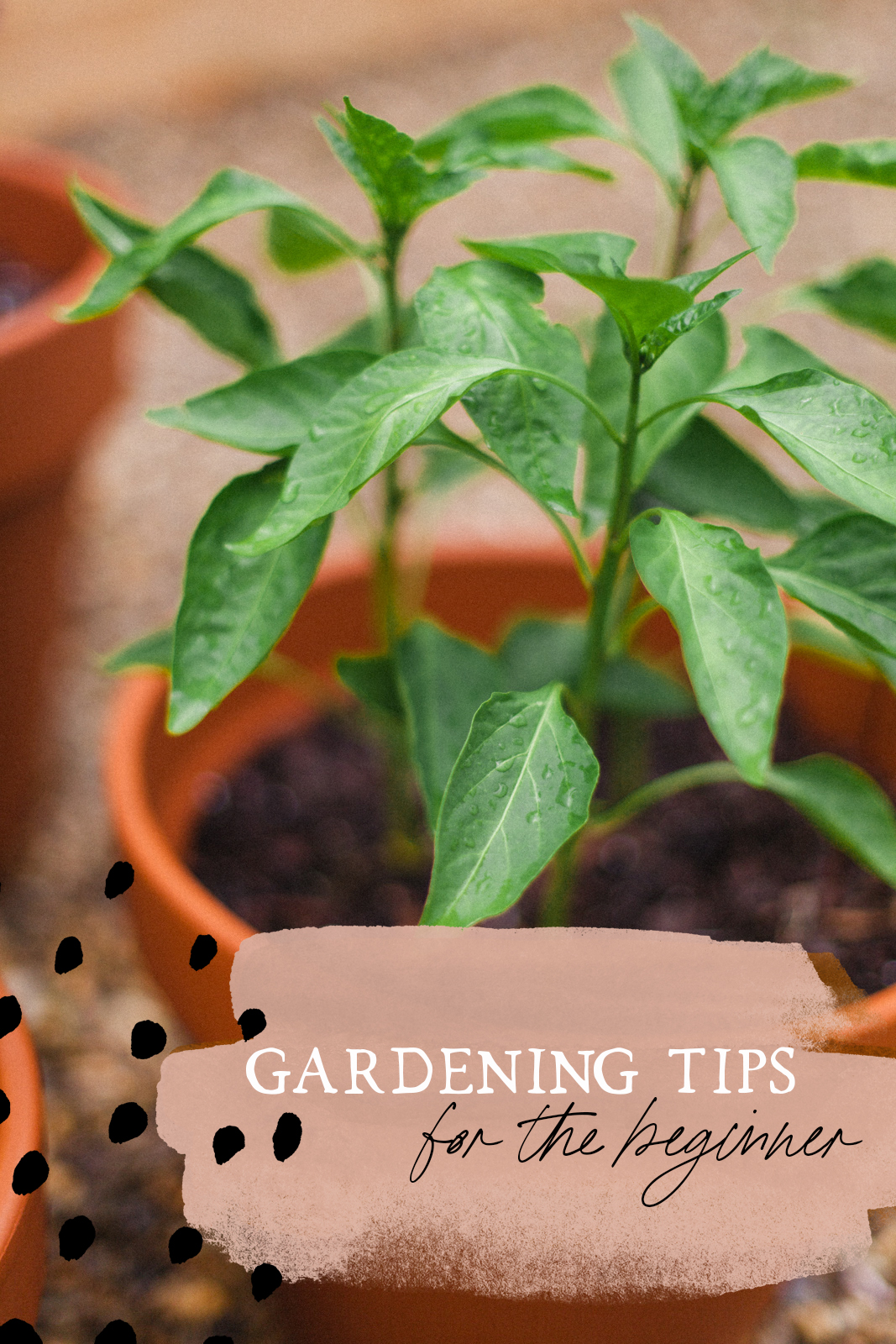
Gardening Tips For The Beginner
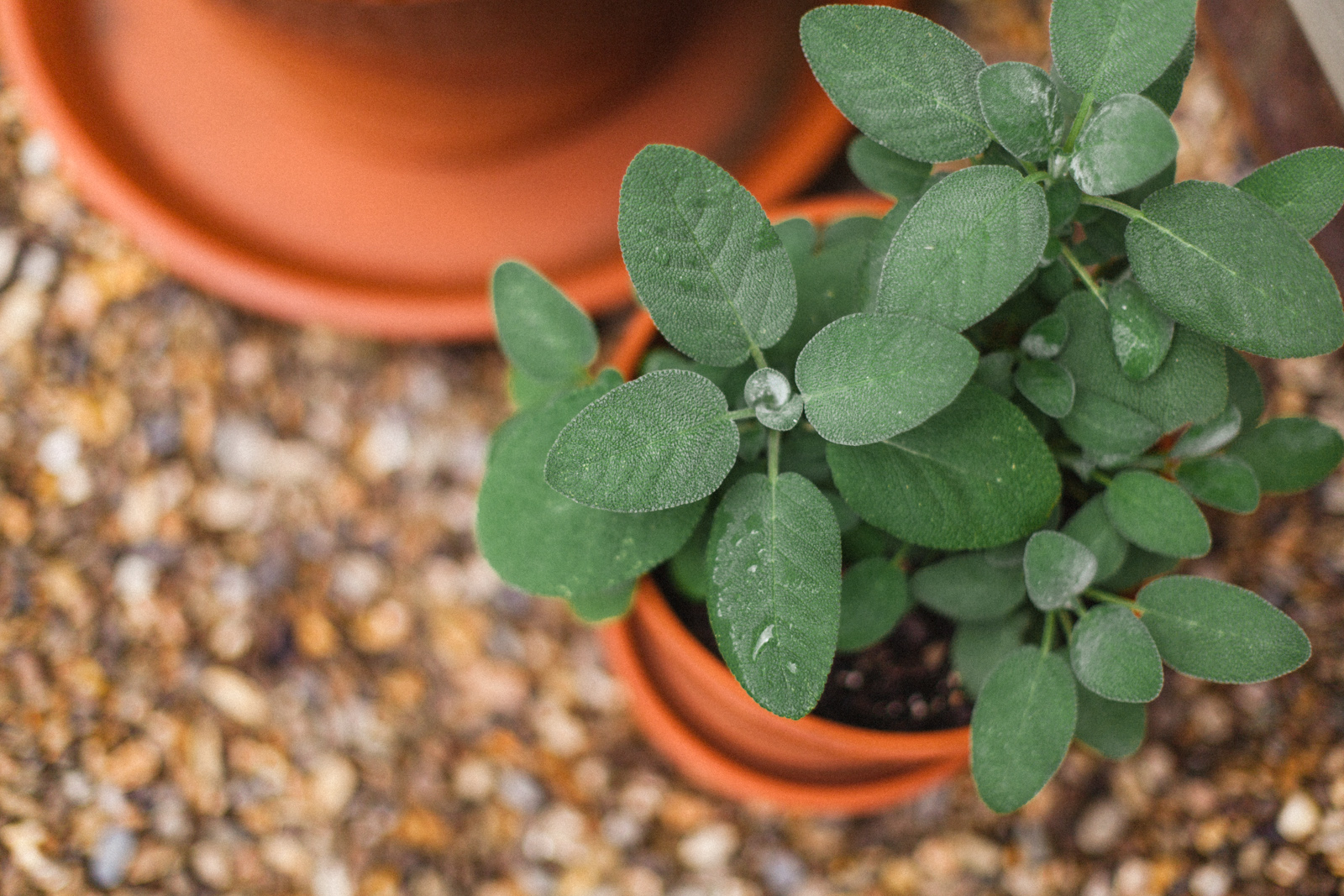
Brhea Koneman is a photographer and aspiring writer, living in North Carolina with her husband and 4-year-old son. She’s passionate about food, design, creative projects and natural living!
Like many others, I started a garden this year! I’ve dabbled in growing herbs and have had a small raised bed of tomatoes and zucchini before, but this is my first time taking on a garden of this size!
What I’ve come to understand with gardening, is that learning and failing are part of the process. If you allow the weight of what you don’t yet know, stop you from planting a garden of your own, you are truly missing out! Let’s encourage and embrace what it means to be a beginner — to make mistakes and to learn hard lessons!
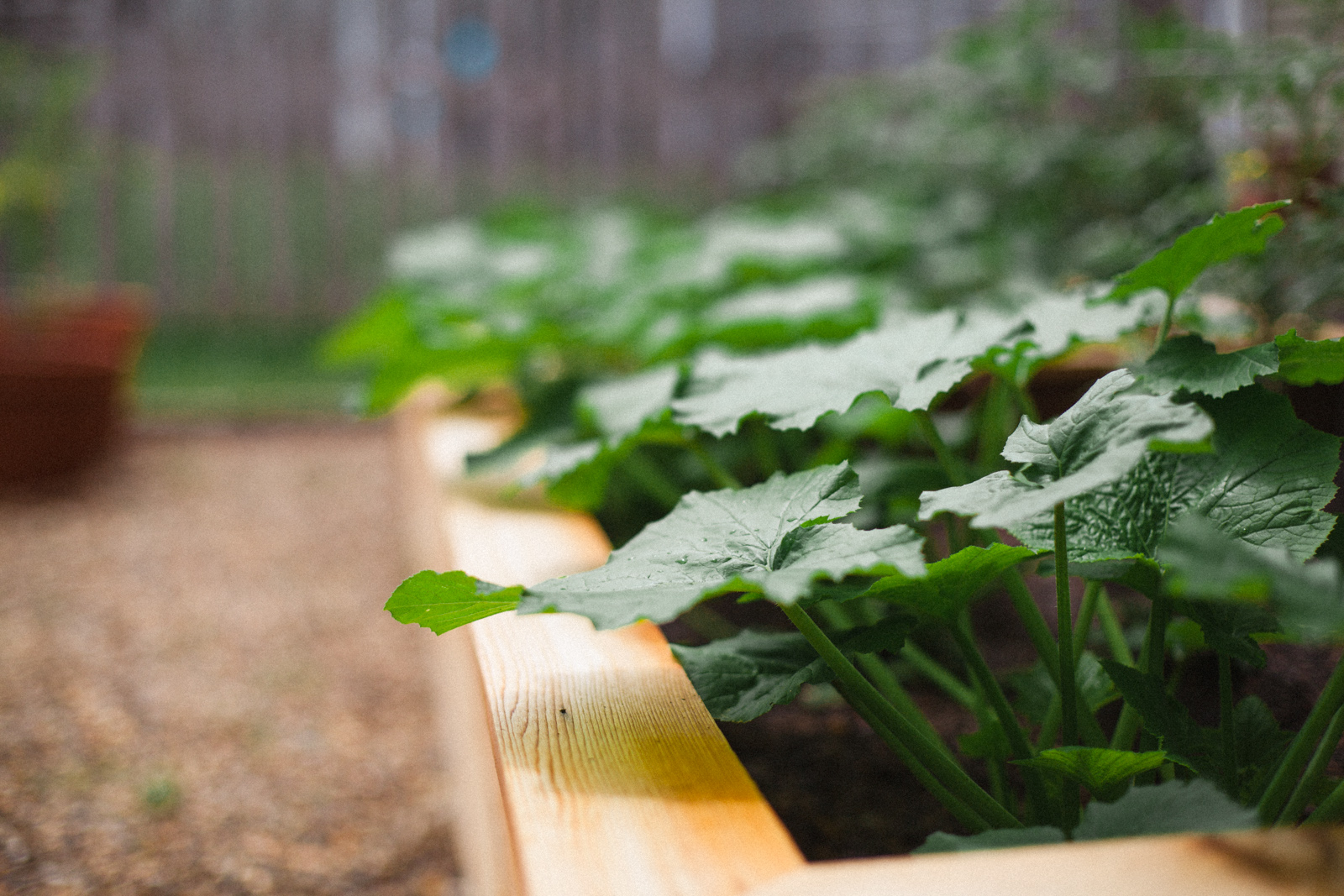
I’m here today to share a few tips that have come in handy for me, as well as some ideas that I recently started to implement using essential oils to support my plants!
1. Learn the proper way to water.
There is not a one size fits all solution with watering. So much is dependent on the drainage of your soil, how much sun your garden area gets, the climate in which you live, if your specific plant is currently producing fruit – and more!
The best advice is to watch your plants closely and to dig your fingers deep into the soil. If wilting is happening, and your soil feels dry you are overdue for watering! Over watering can be a real issue, this can make for weak plants. If your soil feels moist down a couple of inches, and your plants look like they are thriving, resist the urge to water them to death!
The best time of day to water is in the early morning, the next best would be late afternoon once the heat of day has passed, but where there’s still some time for your plants to drink before nightfall, the next best would be evening and the least desirable would be high noon during the hot sun. Remember though, if your plants really need a drink, give it to them!
Last tip, don’t water overhead, as this can promote mold and sun scorch, instead gently water at the base of your plants.
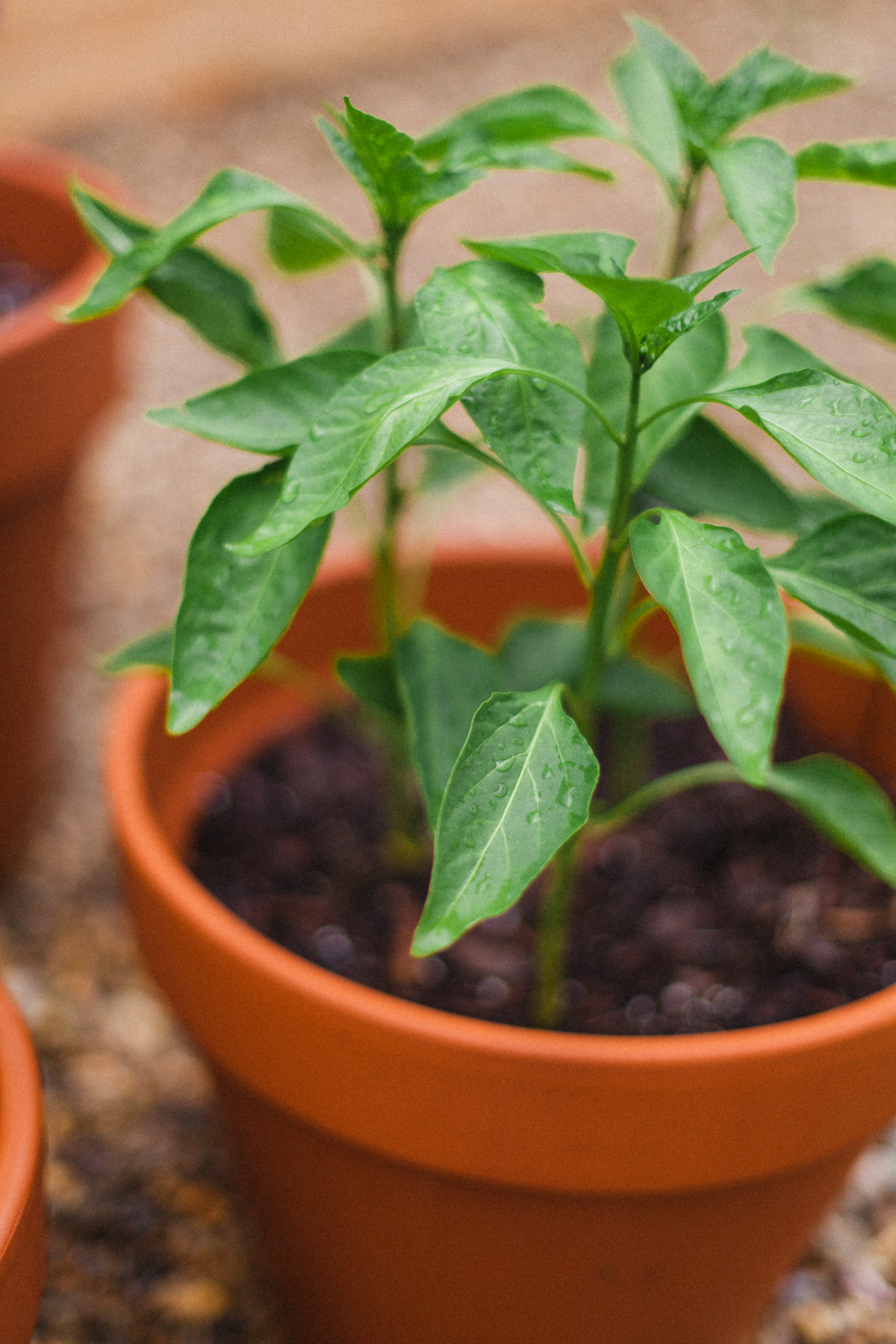
2. Pruning is important.
The most evident this has ever been for me is in my basil plant! Research the proper way to prune each of your plants (youtube has been such a great resource for me as a beginner!), and do your best to stay on top of this. Since I began pruning my basil down regularly, I now have bushy full plants instead of long and sparse. Pruning tomato plants can promote better airflow and keep disease at bay, prune any leaves at the base that might sit on the soil!
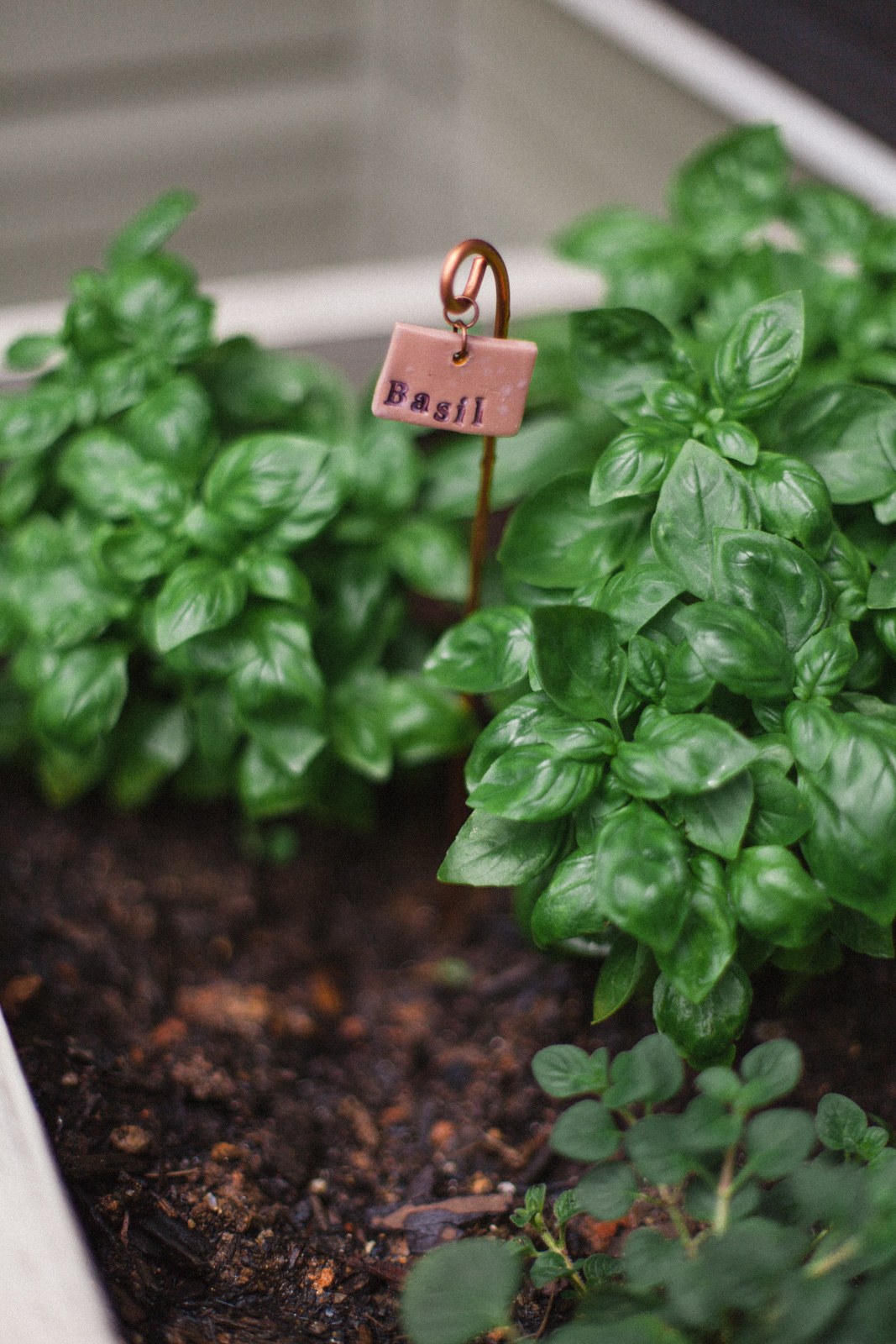
3. Companion planting matters.
There’s tons of information on this out there! As you plan your garden, plant what works well together, likes similar amounts of water, and can even enhance flavor! Pro tip: plant things like mint and spicy peppers in pots of their own!
(shout out to my mama for making these sweet garden tags – she used polymer clay, letter stamps, ink, and copper wire – be sure to seal the clay well after baking!)
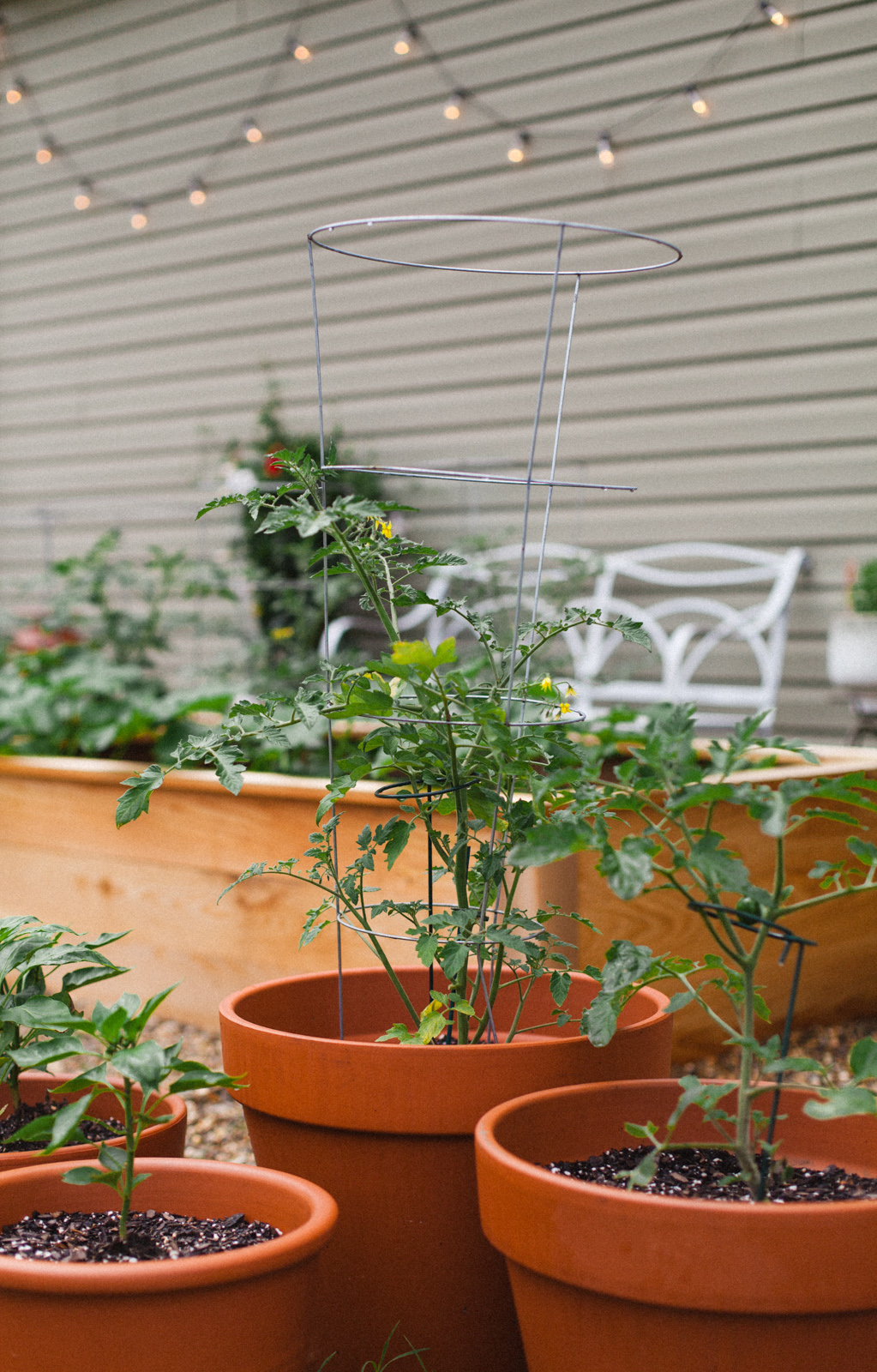
4. Speaking of companion planting, did you know that using essential oils in the garden can work in this way!?
+ Use basil oil to support growth of plants such as tomatoes and peppers! You can add it right into your watering can! Rosemary oil can also work as a great companion oil for hearty plants!
+ Attract bees with lavender essential oil! Make a mist to spray your plants or add some drops to the soil!
+ Cinnamon, peppermint and thieves can all be helpful at keeping pests away in the garden!
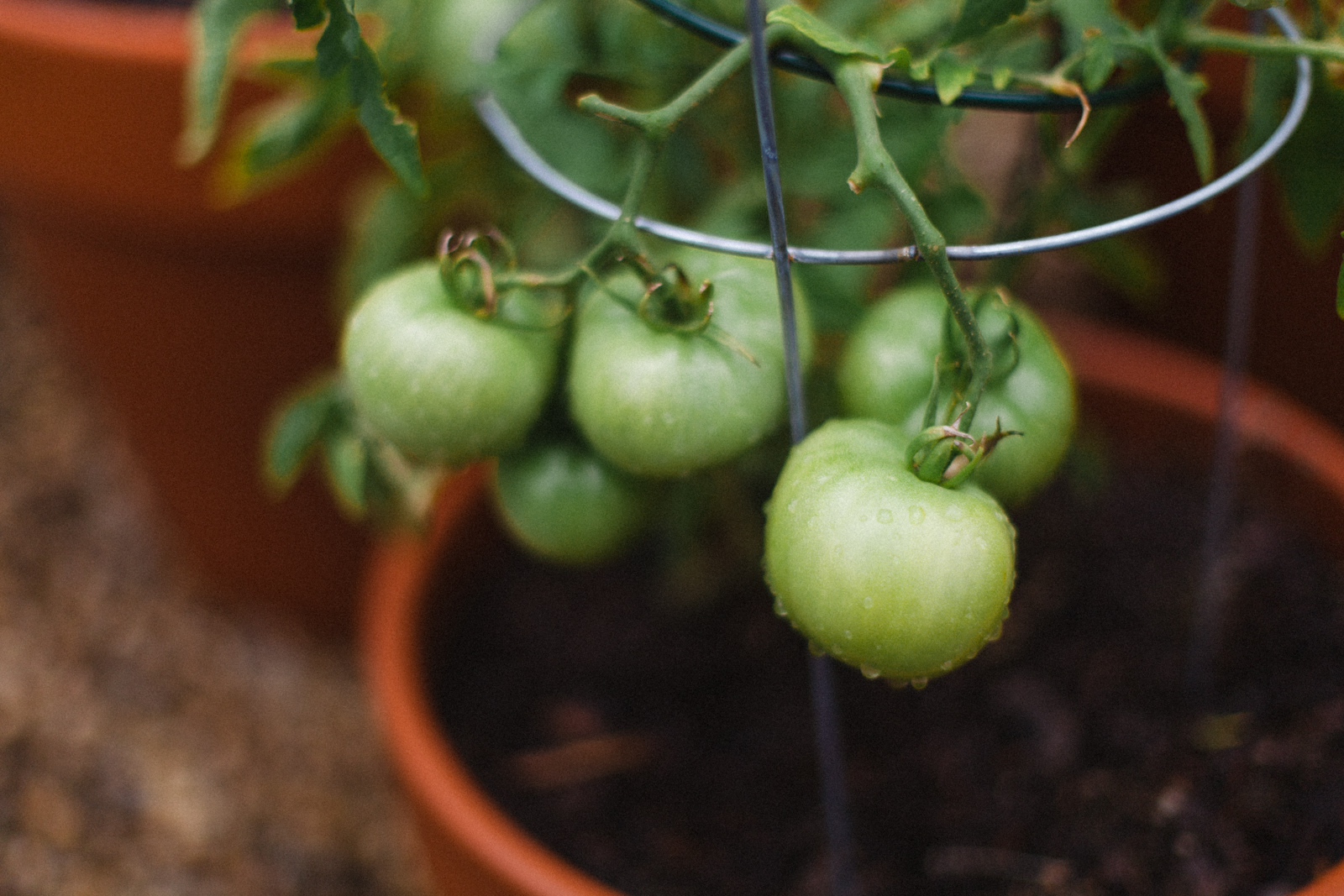
I hope to encourage you to START! Whether that looks like a few pots on your patio, one raised bed, or a garden oasis – the most important part is that you’ve given yourself the gift of time outside nurturing plant life and the ability to grow your own food!
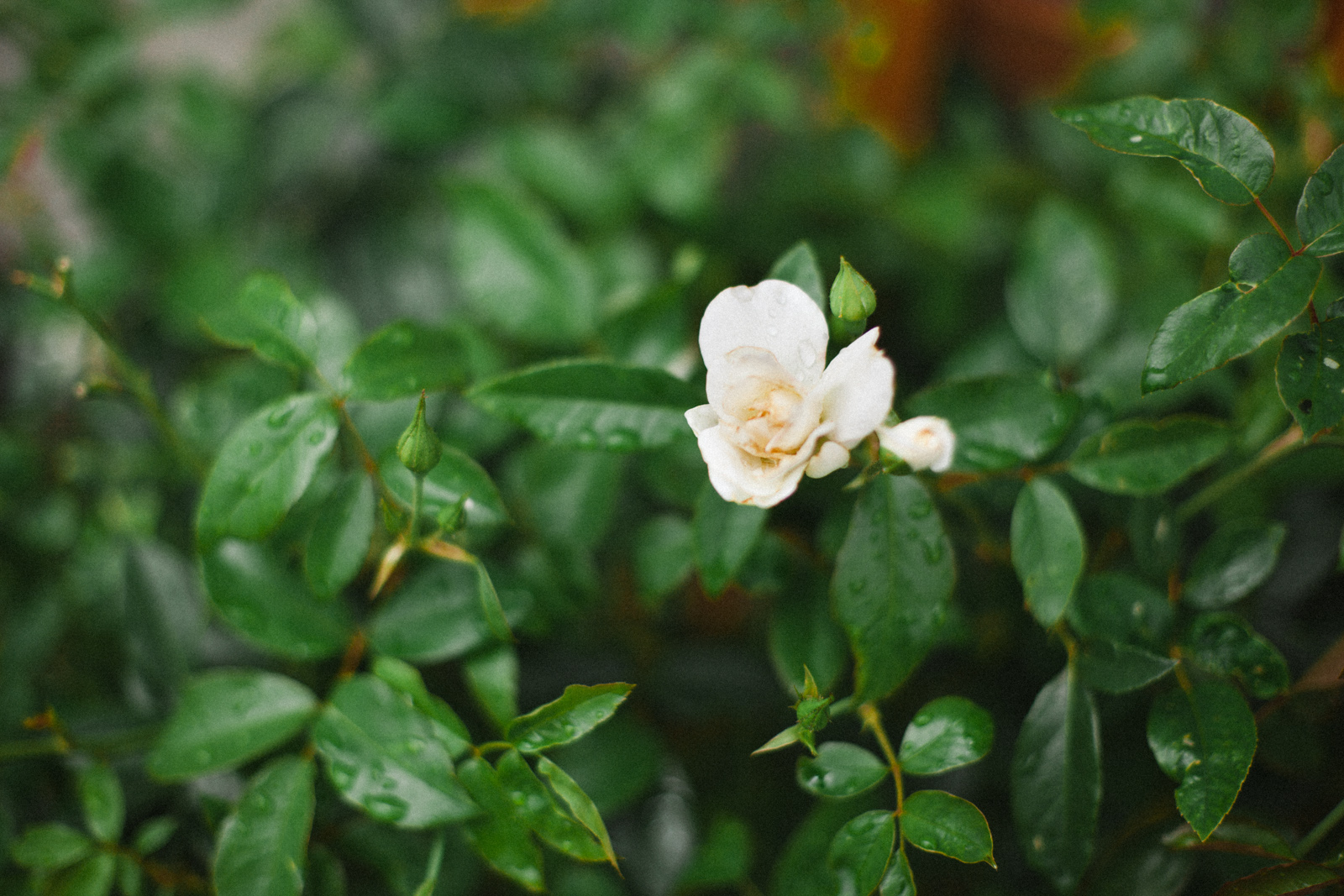
View Comments +
+ Add A Comment